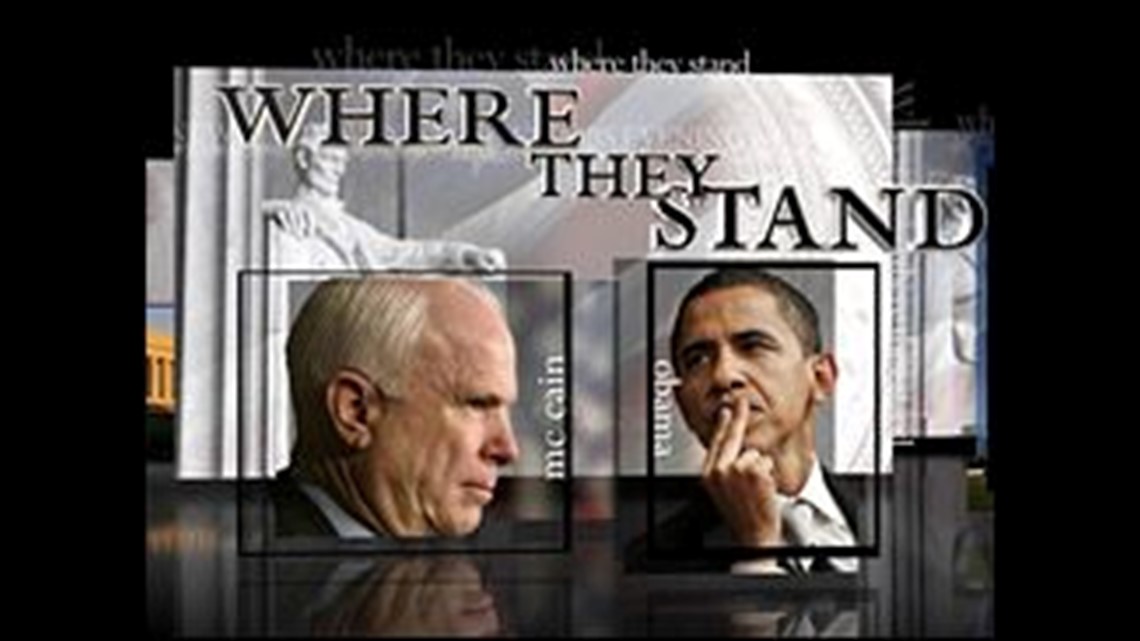

WASHINGTON (CBS) - To help you make an informed decision in the presidential election, CBS News will be devoting a large part of our coverage between now and Nov. 4 to where the candidates stand on major issues. From the war in Iraq to health insurance to education. Each piece will be an in-depth look at the issues facing the 44th president.
Green Beret Tim Brigham is lucky to be alive - and walking - after his spine was shattered during an ambush in northern Iraq, CBS News chief foreign affairs correspondent Lara Logan reports.
"A guy from the left side of where I was came around the corner and shot," Brigham said.
It was May 11, 2005, and his Special Forces unit had just been attacked when Master Sgt. Brigham was shot.
"[It] entered my left side and exited my right side," Brigham said. "Fell from the back of the vehicle onto my head and it knocked me kind of senseless at the time."
Brigham's life was hanging in the balance when his wife, Andrea, got the call at home.
"I said ya know, is he going to be OK?" Andrea Brigham said. "And he said, well this is going to be an important night."
Making it through the night was only the beginning. Brigham was told he may never walk again. During a routine surgery, he reacted badly to the anesthesia and his heart stopped on the operating table.
"They cleared out the waiting room and I thought, OK, he's dead; they're just gonna say he's dead," Andrea said.
For eight minutes, as the surgeon massaged Tim's heart back to life, no oxygen went to his brain.
"I didn't even know my family; I didn't even know my wife's name. I didn't know my kids' names; I knew their faces," Brigham said.
In the long months that followed, he reclaimed his memory piece by piece, learned to walk again, and then, incredibly, re-qualified for duty as a Green Beret.
And in 2007, he returned to Iraq.
"Any long endeavor, of course, there's a price to pay," he said.
The Candidates
For the candidates, that price - and how to honor that sacrifice - is at the core of one of the great challenges confronting the next president: How, and when, to get America's 146,000 troops out of Iraq.
The withdrawal has already begun with President Bush's announcement that 8,000 troops would return home by next February - but that will still leave about 138,000 on the ground as the next president takes office.
"My first day in office, I will bring the Joint Chiefs of Staff in and I will give them a new mission," Barack Obama said in July. "That is to end this war."
And John McCain said on Memorial Day in New Mexico: "As long as there is a reasonable prospect for succeeding in this war, then we must not choose to lose it."
The candidates started out seemingly far apart - with Obama basing his plan on timetables, and what he calls a phased withdrawal.
In March, in Fayetteville, N.C., Obama said: "Fighting in a war without end will not make the American people safer."
McCain argued that the conditions on the ground had to drive the U.S. pull-out.
"The same people that are saying we have ... to set dates for withdrawal are the same people that said we would fail in Iraq," McCain said in Kansas City, Mo., in July. "They were wrong then and they're wrong now."
But it wasn't long before the gap between them narrowed, especially after the Iraqi government endorsed Obama's timetable and the Republican administration began negotiating their own withdrawal plan.
"We will be able to reduce our forces next year and our forces will be out of regular combat operations - dramatically reduced in number - during the term of the next president of the United States," McCain said in Denver in July.
And Obama said just days earlier: "We can safely redeploy our combat brigades at a pace that would remove them in 16 months."
McCain supported the surge last year that together with the peace agreement with Sunni tribes is credited with bringing Iraq back from the brink. Obama says the same factors that led him to oppose the surge still hold true.
"Iraq is not going to be a perfect place, and we don't have unlimited resources to try to make it one," he said.
And McCain says: "Our defeat in Iraq would be catastrophic, not just for Iraq but for us. I cannot be complicit in it."
The Impact
What it means for soldiers like Tim Brigham is simple: He will follow those orders, no matter what is decided.
"Would you keep serving in Iraq as long as there was a need?" Logan asked Brigham.
"Yes, I'm doing it for everybody who's out there," he said.
Since the beginning of the war, more than 4,100 U.S. troops have been killed and more than 30,000 wounded. Military families like Tim and Andrea - like many Americans - fear pulling out too early may undermine those sacrifices, and the work that has been done.
"I'd be upset, because we ... want to see them move forward and not back," Tim said.
Andrea added: "I think there's been too many great sacrifices from family members, from soldiers."
Even if Obama wins and follows through with his 16-month withdrawal plan, what he calls a residual force would remain behind for counter-terrorism missions and to protect diplomatic personnel.
That's much like John McCain's policy, which also envisions a sharply reduced force in Iraq, by 2013. Neither candidate will predict the size of the force they'd leave in the region - both say that'll be based on the conditions on the ground.
Five and a half years after the invasion of Iraq, the decision to go to war - for many Americans - has come to define the Bush presidency. For the next president, the hard decisions about how and when to get out - may well define his.

